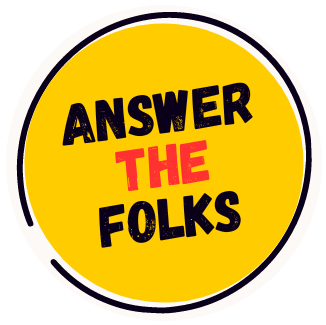A Closer Look at the “Okie Dokie” Phenomenon
Understanding the Okie Dokie Phenomenon
The phrase “Okie dokie” has become widely used in casual conversation, but many are unaware of its origins or what it even means. As educators, we must understand the cultural context behind phrases students may use so we can properly guide them. In this post, I’ll explore the history and meaning of “Okie dokie” along with some common responses.
Where Did It Come From?
The exact origins are unclear, but it’s believed “okie dokie” first emerged in the 1930s-40s. During the Dust Bowl era, many farmers in Oklahoma, Arkansas, Texas, and other drought-stricken areas were forced to relocate to California for work. These “Okies” brought their unique regional slang with them, and “okie dokie” is thought to have referred positively to something being “okay” or agreeable. Over time it took on a more casual, informal connotation akin to “sounds good” or “no problem.”
What Does It Mean?
At its core, saying “okie dokie” is a friendly, chill way of indicating understanding, acceptance or agreement. It can mean:
- I get it/I understand what was said
- Okay, sure, that works for me
- No worries, consider it done
Essentially, it’s a lighthearted confirmation that whatever was proposed is A-OK in the speaker’s book. Different regions may use it with slightly varying intentions, but positivity and cooperation are usually implied.
Common Responses
As “okie dokie” became popular slang, so did creative ways to respond to it. Here are a few examples students may hear in conversations:
Artichokie
This playful twist substitutes “artichokie” for the second part as a nod to the classic children’s book “Green Eggs and Ham.” It’s meant as a silly yet agreeable acknowledgment of the original statement.
Smokey dokey
For those wanting to spice it up a notch, “smokey dokey” incorporates an element of swagger. The implication is that whatever was proposed will not only happen but in superb fashion, as smoothly as a “smokey dokey” suggests.
Nokey dokey
On the other hand, replying with “nokey dokey” indicates some hesitation, reservation or pushback regarding the initial okie dokie. It’s a softer way to express that actually, upon further thought, the matter may not be so okie dokey after all.
Kokomo
Referencing the Beach Boys song, replying with “kokomo” implies ready agreement and a laidback, island state of mind.
Turogie doige
A thoroughly nonsensical yet amusing twist, “turogie doige” is simply meant as a silly acknowledgment with no deeper meaning.
For sureski
Especially popular in snow sports communities, “for sureski” trades in elements of both agreement (“for sure”) and fun (“ski”).
You betcha
With Minnesota or Midwestern roots, “you betcha” conveys the same hearty enthusiasm as a confirmation as one might use for “don’t ya know.”
Okey cokey
Riffing playfully on both “okie dokie” and the familiar line dance, responding with “okey cokey” expresses lighthearted participation.
Copy that
For those in the military, law enforcement or similar fields where lingo is common, “copy that” translates the okie dokie sentiment into such circles.
Affirmative
With a focus on brevity, replying “affirmative” to okie dokie keeps things succinct yet still conveys the key message of confirmation.
Read Also: How to Respond When Someone Say Something Mean
Some Common Examples:
- When my friend asked if I could pick them up from practice, I replied “Okey dokey, kokomo!” to show them that it wasn’t an issue.
- The coach said we needed to run drills again, and I mumbled “turogie doige” under my breath, knowing it meant more laps were in my future.
- As we made plans for our ski trip, my buddy said “The forecast looks good, okie dokie?” and I responded “For sureski, the pow pow will be epic!”
- My grandma always says “You betcha” no matter what she agrees to, from doing chores to having cookies – it’s just how she talks and it makes us smile.
- When my co-worker asked if I could cover the late shift, I hit them with the “Okey cokey, sign me up coach!” to show I was happy to help out.
- During our last training exercise, the sergeant asked over the radio “Everybody in position?” and I clicked back “Copy that, all clear here sarge.”
My Okie Dokie Story
As an educator who grew up in rural Oklahoma, I fondly remember “okie dokie” being used frequently amongst friends and family. One story that always makes me chuckle occurred back in middle school…
I was waiting after class to ask my math teacher a question but felt too shy. My friend Sarah said “Just go for it, okie dokie?” to encourage me. In that moment, another student walked by and jokingly replied “artichokie!” We laughed and I approached the teacher with ease. Even years later, the silly “artichokie” response still brings a smile to my face.
Conclusion
While “okie dokie” may seem like a simple, meaningless phrase to some, I hope this post helped provide useful cultural and linguistic context behind its origins and common usages. As educators, gaining familiarity with expressions students encounter can foster stronger relationships and understanding between us. And who knows, maybe taking the time to learn about slang like this may even allow you to insert a clever “artichokie” of your own in conversation someday!
FAQs
What other responses are there to “okie dokie”?
Another playful response is “crookie cookie” which mixes up the sounds for a silly twist. You may also hear “roger dodger” used similarly in some circles.
Is “okie dokie” considered slang?
Yes, it would be classified as informal or casual slang since it has a light, conversational tone rather than more proper language.
Do other countries use “okie dokie”?
While most common in America, you may hear variations of “okie dokie” used in other English-speaking places with similar casual, agreement-related intentions. But regional differences exist in precise meanings.
Is it okay for students to say “okie dokie” at school?
Absolutely! As an expression of friendliness and cooperation, “okie dokie” fits well within most school environments. Just be mindful of tone and context like with any language.
What are some alternatives to “okie dokie”?
Other easygoing ways to express understanding include “sounds good,” “you got it,” “no problem,” and “will do.” The key is finding a tone of positivity, care and togetherness.
I hope this blog post provided a fun and informative look into the origins and usages of the classic phrase “okie dokie.” Please let me know if any other questions come up!

